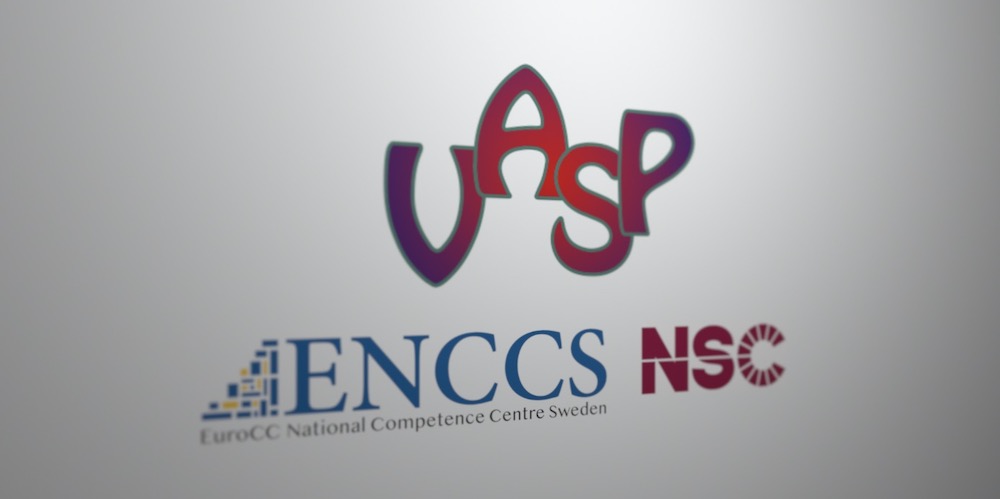
- This event has passed.
VASP best practices workshop
4 Apr 2023 @ 10:00 - 5 Apr 2023 @ 17:00 CEST

About
In this NSC NAISS-ENCCS workshop, including seminars and hands-on sessions, we will consider how to run the Vienna Ab-initio Simulation Package (VASP) efficiently on supercomputers. The workshop is mostly suitable for beginners and intermediate users at different stages and the focus will be on best practices for running VASP calculations. The hands-on part will be done at the Tetralith cluster in Sweden and EuroHPC JU Meluxina cluster. Parts of the seminars (to be made available for download) can also be of interest for advanced users.
Prerequisites
- Basic experience with using the command line in a Linux/Unix environment
- Useful but not necessary: basic knowledge of electronic structure theory and/or DFT
Registration
Registration is now closed.
Topics
The seminars include:
- basic theory, DFT and PAW-method
- general introduction to VASP, essential files and parameters, workflow
- running VASP at HPC centers, CPUs and GPUs (examples from NAISS)
- performance analysis
- common issues
- post-processing tools
The hands-on sessions include:
- running VASP calculations step-by-step on the Tetralith or MeluXina
- Q&A
Material
Materials for the seminars and hands-on sessions will be made available later.
Tentative Agenda
Breaks: Apart from the 1h lunch break for people joining the hands-on sessions, there will be 10-15 min breaks every hour.
Tuesday - 4 April 2023
[ninja_tables id="22050"]Wednesday - 5 April 2023
[ninja_tables id="22051"]Instructors
- Weine Olovsson - Instructor (NSC)
- Pavlin Mitev - Teaching assistant (Uppmax)
- Diana Iusan - Teaching assistant (Uppmax)
- Luis Casillas Trujillo - Teaching assistant (NSC)
Organization
This is event is organised by Weine Olovsson (NSC) and Thor Wikfeldt (ENCCS).
Follow our Events Schedule
Follow us on Twitter and subscribe to our Newsletter to stay tuned to our events and other news.
————
This training is intended for users established in the European Union or a country associated with Horizon 2020. You can read more about the countries associated with Horizon2020 here https://ec.europa.eu/info/research-and-innovation/statistics/framework-programme-facts-and-figures/horizon-2020-country-profiles_en







